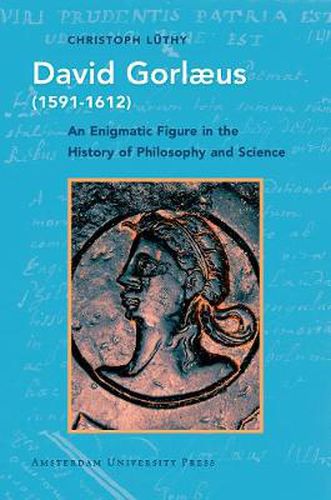Readings Newsletter
Become a Readings Member to make your shopping experience even easier.
Sign in or sign up for free!
You’re not far away from qualifying for FREE standard shipping within Australia
You’ve qualified for FREE standard shipping within Australia
The cart is loading…






When David Gorlaeus (1591-1612) passed away at 21 years of age, he left behind two highly innovative manuscripts. Once they were published, his work had a remarkable impact on the evolution of seventeenth-century thought.
However, as his identity was unknown, divergent interpretations of their meaning quickly sprang up. Seventeenth-century readers understood him as an anti-Aristotelian thinker and as a precursor of Descartes. Twentieth-century historians depicted him as an atomist, natural scientist and even as a chemist. And yet, when Gorlaeus died, he was a beginning student in theology. His thought must in fact be placed at the intersection between philosophy, the nascent natural sciences, and theology.
The aim of this book is to shed light on Gorlaeus’ family circumstances, his education at Franeker and Leiden, and on the virulent Arminian crisis which provided the context within which his work was written. It also attempts to define Gorlaeus’ place in the history of Dutch philosophy and to assess the influence that it exercised in the evolution of philosophy and science, and notably in early Cartesian circles. Christoph Luthy is professor of the history of philosophy and science at Radboud University Nijmegen, the Netherlands.
$9.00 standard shipping within Australia
FREE standard shipping within Australia for orders over $100.00
Express & International shipping calculated at checkout
When David Gorlaeus (1591-1612) passed away at 21 years of age, he left behind two highly innovative manuscripts. Once they were published, his work had a remarkable impact on the evolution of seventeenth-century thought.
However, as his identity was unknown, divergent interpretations of their meaning quickly sprang up. Seventeenth-century readers understood him as an anti-Aristotelian thinker and as a precursor of Descartes. Twentieth-century historians depicted him as an atomist, natural scientist and even as a chemist. And yet, when Gorlaeus died, he was a beginning student in theology. His thought must in fact be placed at the intersection between philosophy, the nascent natural sciences, and theology.
The aim of this book is to shed light on Gorlaeus’ family circumstances, his education at Franeker and Leiden, and on the virulent Arminian crisis which provided the context within which his work was written. It also attempts to define Gorlaeus’ place in the history of Dutch philosophy and to assess the influence that it exercised in the evolution of philosophy and science, and notably in early Cartesian circles. Christoph Luthy is professor of the history of philosophy and science at Radboud University Nijmegen, the Netherlands.